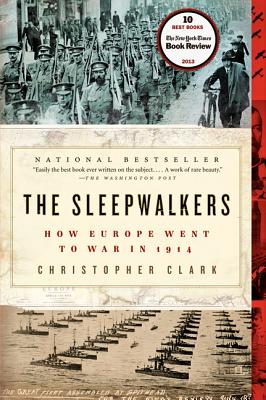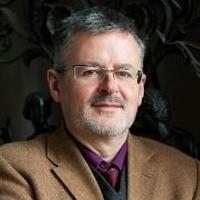

 Harper Perennial
Harper Perennial
The Sleepwalkers: How Europe Went to War in 1914


Key Metrics
- Christopher Clark
- Harper Perennial
- Paperback
- 9780061146664
- 8 X 5.3 X 1.4 inches
- 1.2 pounds
- History > Europe - Great Britain - 21st Century
- English
 Secure Transaction
Secure TransactionBook Description
One of The New York Times Book Review's 10 Best Books of the Year
Winner of the Los Angeles Times Book Prize (History)
The Sleepwalkers: How Europe Went to War in 1914 is historian Christopher Clark's riveting account of the explosive beginnings of World War I.
Drawing on new scholarship, Clark offers a fresh look at World War I, focusing not on the battles and atrocities of the war itself, but on the complex events and relationships that led a group of well-meaning leaders into brutal conflict.
Clark traces the paths to war in a minute-by-minute, action-packed narrative that cuts between the key decision centers in Vienna, Berlin, St. Petersburg, Paris, London, and Belgrade, and examines the decades of history that informed the events of 1914 and details the mutual misunderstandings and unintended signals that drove the crisis forward in a few short weeks.
Meticulously researched and masterfully written, Christopher Clark's The Sleepwalkers is a dramatic and authoritative chronicle of Europe's descent into a war that tore the world apart.
Author Bio
Christopher Clark was educated at Sydney Grammar School from 1972 to 1978, the University of Sydney (where he studied history) and the Freie Universität Berlin from 1985 to 1987.
Clark received his PhD at the University of Cambridge, having been a member of Pembroke College from 1987 to 1991. He is Professor in Modern European History at the University of Cambridge and, since 1991, has been a fellow of St Catharine's College,[3] where he is currently Director of Studies in History. In 2003, Clark was appointed University Lecturer in Modern European History and, in 2006, Reader in Modern European History. His Cambridge University professorship in history followed in 2008.[4] In September 2014 he succeeded Richard J. Evans as Regius Professor of History at Cambridge. In the birthday honours of June 2015, Clark was knighted on the recommendation of the foreign secretary for his services to Anglo-German relations.[2]
Clark's research interests are centred on the history of nineteenth-century Germany and continental Europe. His early work focused on the political and cultural history of religion. His first book was a study of the relationship between Christians and the Jewish minority in Prussia between 1728 and 1941; here he explored the ways in which contemporary understandings of Christianity shaped successive mutations of the 'Jewish Question'.
Since then he has published various articles and essays on related subjects - some of them examine the trouble that results when the state authority takes the initiative in religious questions, others look at the ways in which questions of religious allegiance were implicated in processes of political and cultural change. In 2004 he co-edited, with Wolfram Kaiser of the University of Portsmouth, an edited volume about the 'culture war' between Catholic and secular social forces that polarized so many European states in the years 1850-1890.
In the meanwhile, he has published a study of Kaiser Wilhelm II (2000) for the Longmans/Pearson series Profiles in Power and completed a general history of Prussia for Penguin, due out in spring 2006.
He is currently working on a study of political change across Europe in the aftermath of the 1848 revolutions.
Source: University of Cambridge Faculty of History and U.K. government documents
Videos








Community reviews
Write a ReviewNo Community reviews